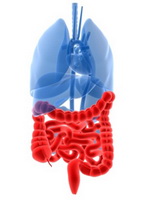Microbe and gene links in inflammatory bowel disease
IBD is a group of diseases presenting with a strong environmental influence and complex genetic susceptibility background. Although the gut microflora plays a crucial role in disease aetiology, the precise mechanism is not fully understood. Research evidence indicates that proteases and protease inhibitors (P/PIs) are implicated in gut mucosal inflammation. To provide further mechanistic insight into the role of P/PIs in human IBD, the EU-funded Ibdase project aimed to analyse genotype/phenotype associations in IBD patient cohorts across Europe. Firstly, the consortium reviewed all published genetic IBD studies and performed an association of all P/PI genes with IBD. This was followed by gene sequencing and genetic association studies in over 2 000 Crohn's disease patients, 2 000 ulcerative colitis patients and nearly 1 800 healthy controls. Expression of the candidate P/PI genes was analysed in clinical specimens and in IBD animal models alongside immune-related genes. The expression pattern in three IBD models indicated a diverse pro-inflammatory gene signature unique to each IBD model. However, two molecular pathways were common to all models, namely the complement system and the proteasome-ubiquitin system. These pathways were also represented among the P/PI genes with greatest genetic evidence in human IBD. The consortium was successful in proving that the intestinal microbiota plays an important, immune regulatory, homeostatic function in the intestine and that the lack of microbiota-induced genes might lead to intestinal inflammation. They discovered that the interaction between one of the P/PI candidates, meprin, and the Crohn's disease-associated bacterial strain LF82, has a pathogenetic role in disease development. By using animal models missing certain P/PI genes, scientists validated the role of the most promising candidate P/PI genes and associated molecular pathways. Altogether, the Ibdase project provided evidence for a protective role for the mucosal proteolytic barrier towards the intestinal microbiota. Modulation of P/PI activity comes as a promising therapeutic approach for IBD alongside manipulation of certain immune-associated pathways. Nonetheless, the complex nature of the disease in humans indicates that further work is required at the individual level to fully elucidate the pathogenetic mechanisms responsible for disease development in each case.







